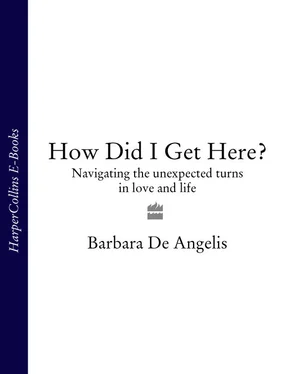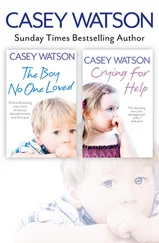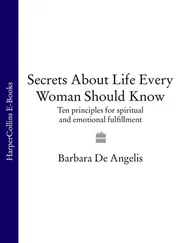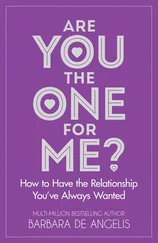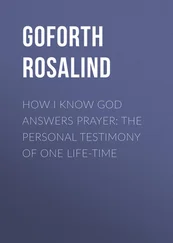It is a book about how asking and answering this question will release you from the fear, confusion and grief that so often keep us trapped in the past or stagnating in the present and will free you to finally move forward into a life of more purpose, joy, true contentment and renewed passion.
What do you do when you realize that your old map has taken you in a direction you no longer wish to travel? What do you do if you come to a fork in the road and don’t know which way to go? How do you map out the next part of your journey? How do you redesign the blueprint of your life? How do you begin again?
How Did I Get Here? is about finding your way to renewed hope and happiness from wherever you are. It is about opening these doorways into personal transformation that often come disguised as dead ends. It offers you ways to take charge of your circumstances by first assessing where you are, how your map got you here, and dealing with all the issues that come with finding yourself at unexpected places, whether in your outer world or your inner world. It acts as a navigational handbook, guiding you through the thick jungle of thoughts and emotions that we must often pass through in order to emerge on the other side of a powerful rebirth. It will help you to understand the map you’ve been using, and invites you to craft a new one by moving beyond the question “How did I get here?”to “What are my choices?” “What do I do now?” “How do I move forward?” “Where is it that I want to go?”And it will support you in discovering the answers.
I’ve always said that my books don’t come “from” me but “through” me, for that is my experience. I don’t choose the topic I am going to write about; it chooses me. It is as if a book compels itself to be written, calling to me from wherever books come from, thrusting its way into my awareness, exclaiming: “Here I am! Pay attention to everything I have to say, and write it down carefully.” For me, writing a book has always been my answer to that call.
How Did I Get Here? is just such a book, born of a powerful, insistent voice that demanded to be heard. Its message is for me, for you and for many of the people you know and love. It is a guide for all of us on the path of self-discovery in these changing, turbulent times. It is the most important book I believe I can write, and one to which I deeply relate, for it has emerged from my own very eventful journey, a journey characterized by frequent and revolutionary transformation, both personally and professionally.
I have not had an easy life. It has been riddled with disappointments and disillusionment, barraged by loss and betrayal, and besieged with far too many occasions for sadness and despair. I’ve been forced to learn how to navigate through the unexpected again and again … and again.
I know what it’s like to have the person you love walk out on you with no explanation, never to return. I know what it’s like to lie in bed next to someone who used to love you and feel him cringe when you try to touch him. I know what it’s like to have shared a dream with someone and helplessly watch that dream shatter into pieces until there is nothing left. I know what it’s like to work hard in your career to build something you believe in, only to have someone come along and try to destroy it all. I know what it’s like to lose the comforts and abundance you waited so many years to enjoy, and wonder if you will ever have them again. I know what it’s like to come face to face with circumstances and events that seem horribly unfair, as if you are being singled out for extra suffering by some Universal Power. I know what it’s like to feel your heart sink as you realize that once again you are going to have to start over, and not be sure that you have the energy, the courage and the faith to begin one more time.
I have known all of these challenges and more. And so, you see, it was for my own emotional survival that I’ve had to become an expert at change, to define and understand the mechanics of personal transformation, to figure out how to go through profound transitions without falling apart or going crazy. Whenever I’m interviewed about my career and am asked who or what has had the most meaningful influence on my work, I always give the same answer, to the great surprise of the interviewer: “Painful experience—it turned me into a transformational specialist.” In no way do I think of these hurts, heartbreaks and challenges as mistakes. After two decades helping hundreds of thousands of people, I’ve come to know with total certainty that the opposite is true: My life has been “transformationally eventful” for a reason.
Let me tell you a story:
Many years ago, when I was just beginning to teach seminars to small groups of people in Los Angeles, a friend of mine invited me to meet someone he called “a very unusual man.”
“This guy may seem eccentric,” my friend explained, “but he has a real gift—he can look at you for just a minute, and tell you your purpose in life.”
I was intrigued by this claim, and being a student of metaphysics and spiritual growth, I decided I had to pay a visit to this interesting fellow.
“You won’t be sorry!” my friend promised.
The next evening he drove me to an apartment complex near the ocean where I was to wait with dozens of other curious seekers for my two-minute encounter.
The moment arrived, and I was ushered into a small room in which the mystical seer was seated on a couch. He was dressed in a dark and well-tailored suit ornamented by a shiny gold pocket watch. To be honest, he looked more like a dapper, well-fed English gentleman than someone who could see into a person’s destiny. He asked me my name and welcomed me, all the while peering intently into my eyes.
Suddenly, in a deep booming voice, he blurted out, “Rhinoceros!”
“ Rhinoceros —what does that have to do with my purpose in life?” I thought to myself. “What is he telling me—that I should become a zoologist or move to Africa?” I was completely perplexed and began to wonder if my friend had set me up for a practical joke.
“Excuse me?” I replied. Perhaps I hadn’t heard him correctly. He did have an odd accent. Maybe he’d said “Philosopher,” and I thought I’d heard “rhinoceros.” I could relate to that answer. Now my mind was racing. “Rhine” something. Could he have said “rhinoplasty”? Wasn’t that the term for a nose job? I’d always liked my nose. Did he think I needed plastic surgery?
“Rhinoceros!” he exclaimed again, interrupting my reverie, this time with a huge smile. I shook my head, trying to indicate that I had absolutely no idea what he was talking about, and got up to leave when he practically shouted, “The horn! The horn of the rhinoceros! That is what you are, my dear.”
I sat back down. “Please explain what you mean,” I asked.
“You are the horn of the rhinoceros, the part that boldly sticks out and precedes the body. The horn goes first, you see. The horn is strong, courageous, relentless. It explores the unknown and the dangerous; it pierces the barriers; it removes all obstacles in the path of the rhinoceros so he can travel safely and with greater speed. The horn confronts the problems on the path, and lets the body of the rhinoceros know about them. It helps him change direction, protects him from harm. The horn is the teacher, the body the follower. The horn gets scarred so the body can be saved from calamity. The horn discovers the truth on the path so the body can move forward in freedom.”
I listened with fascination to everything he was telling me. According to him, this was my purpose in life, to be the horn of the rhinoceros. I thought I understood part of what he was describing. Even in those early years of working with people, I had a sense that my own experiences were going to be the core of the knowledge I had to offer others. I remember thinking that what he said resonated with something I felt inside, but I wasn’t sure exactly what that something was. Still, I was glad I had come to see him. As I thanked him and walked toward the door. He waved his finger at me with great emphasis, calling, “Don’t forget—you are the horn!”
Читать дальше
